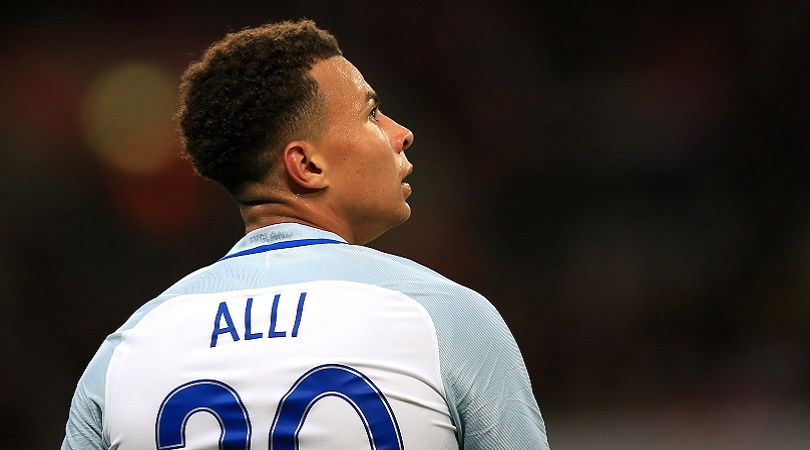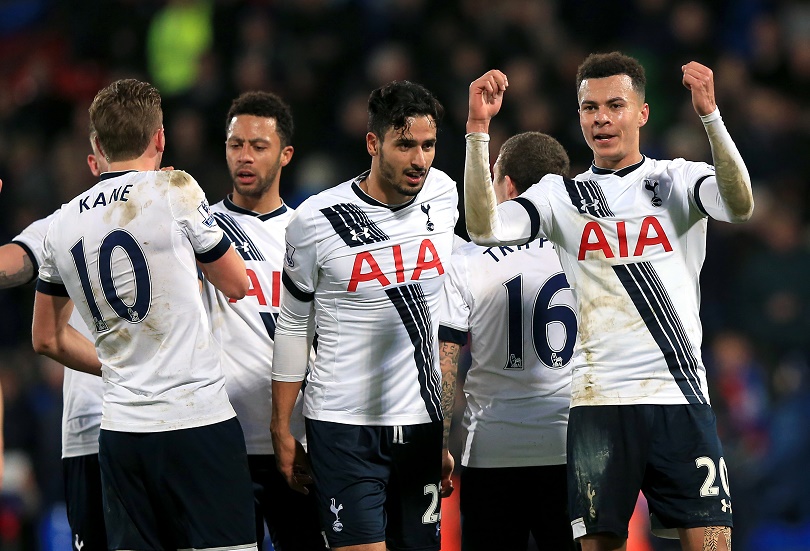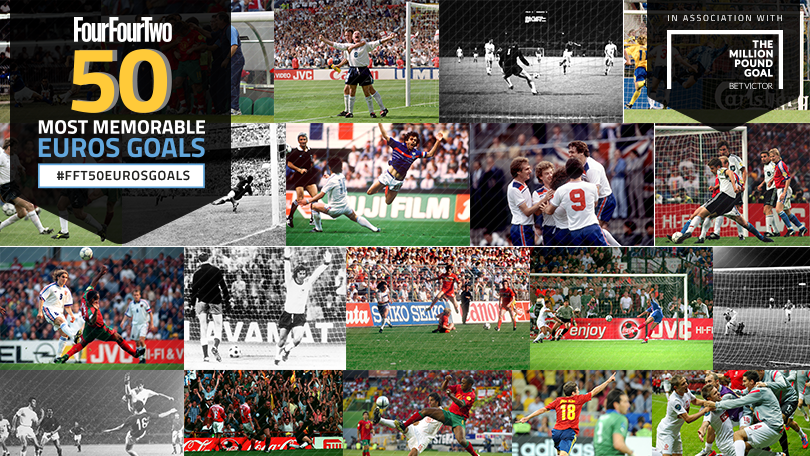Dele Alli's temperament doesn't need curbing – and it may never do
England's opponents may seek to wind the Tottenham man up at Euro 2016, but Seb Stafford-Bloor warns that trying to end his petulance could also make him less effective as a player...

Ricardo Carvalho had done his homework. In the first half of Portugal's friendly against England, a pointed finger into the spall of Dele Alli's back let the young midfielder know that Carvalho knew where his pressure points were.
Perhaps the Portuguese had been watching the Premier League that evening in April when West Brom derailed Tottenham's title ambitions. From the first minute, almost certainly under managerial instruction, rugged midfielder Claudio Yacob skittled Alli at every opportunity, eventually goading him into the violent reaction that would draw a three-game ban and end his domestic season.
Opponents have Alli's card marked. English football's visibility ensures that they're not only aware of the talent he possesses and the dangers he presents, but also the fact he's fuelled by a combustible energy that can be disturbed; goad him in the right way and there's an advantage to be gained. "I'm a lot different off the pitch than I am on it," Alli himself grinned to FFT earlier this year. He acknowledges it.
Inseparable elements
The twin energies that make him a great player and a disciplinary risk come from the same place - two types of heat, powering different parts, but originating from the same fire
England fans will feel a sense of deja vu here: Saint-Etienne 1998 is still prevailent in memories and, just as with David Beckham, they know that Alli's untamed ability comes with a few red flags. Naturally, then, the caveats have already been written and ex-professionals, journalists and members of the public are lining up to issue warnings. Alli must control his temper and, in the hothouse of a European Championship, must subdue his petulance.
As wise as that thinking is, it disregards an inconvenient truth: these two sides of Alli's personality are likely inseparable. The twin energies that make him a great player and a disciplinary risk come from the same place – two types of heat, powering different parts, but originating from the same fire.
Alli is an expressive and completely fearless footballer. His rise from League One to the Premier League to the England national team has been facilitated by ability, of course, but also by an unusual lack of inhibition. Presented with a similar climb, most players would struggle and fight for breath in the thinning air, but Alli is not like that.
Get FourFourTwo Newsletter
The best features, fun and footballing quizzes, straight to your inbox every week.
An intoxicating cocktail of conviction and talent, coated with healthy arrogance, he performs as if oblivious to consequence. He did at the Emirates, right at the beginning of his Tottenham career, when he danced in the storm of a north London derby. He did it again at Selhurst Park, with his moment of balletic brilliance among the flying studs and elbows. And, once more, on his first start for England, he did it by thundering a long-ranger past Hugo Lloris at Wembley.
Instinct takes over
Force him to think too much about what he does on the pitch and you might blunt the precious expression with which he plays
Those were all moments animated by exuberance. He is not a percentage player who calculates risk and reward; rather, he is impulsive, emboldened by self-belief and refreshingly oblivious to what could go wrong. As he gets older and his game becomes more refined, perhaps he will become calmer and more cerebral. For now, though, his greatness is derived from his natural traits: he doesn't think, he just does – his influence on games is a reflexive combination of style, imagination and, occasionally, foolishness.
It's been repeated so often as to become a meaningless platitude, but it really would be counter-productive to attempt to interfere with that balance. Dilute that pulsing anger and you risk diluting the quality. Force him to think too much about what he does on the pitch and you might blunt the precious expression with which he plays.

Ability isn’t always inextricably bound to menace, but the two meet more often than assumed. In football specifically, many of the game's greats have possessed an irregular quality which, either on the pitch or off it, has made them behave erratically.
A genius's flaw
Alli's sharp edges could be a permanent part of his make-up and, when needled by 2025's version of Claudio Yacob, he may still respond in exactly the same way
Special talent is often flecked with imperfection and that manifests itself in all sorts of different ways. From Zinedine Zidane to Brian Clough, Eric Cantona to Garrincha, the sport's history is littered with examples. Sometimes, in those mentioned and beyond, darkness was the consequence of superiority being challenged; other times it was just a personality feature.
When Zidane floored Marco Materrazzi in the 2006 World Cup Final, was it just because of what the Italian had said or, at least partly, because Zidane felt compelled to headbutt him from his stage? It was his final, his curtain call, and Materazzi was interfering with his glorious exit.

Zidane's infamous headbutt on Materazzi
Alli doesn't belong in this conversation yet. For all his talent, he's yet to achieve anything tangible. In 10 years' time, perhaps we'll look back on this stage of his career and see his petulance as nothing more than a Beckham-like stage which he eventually grew out of – possibly after a similarly chastening experience.
Alternatively, though, Alli's sharp edges could be a permanent part of his make-up and, when needled by 2025's version of Claudio Yacob, he may still respond in exactly the same way. There's no way of knowing. Ex-professionals can counsel him through the press and the media can write articles voicing concern, but it's something that's ultimately resistant to intervention; it will either be cured by the passing of time or it won't.
Dull one, lose the other?
That may be a difficult realisation for England to bear – it's not really in the national psyche to take a hands-off approach with burgeoning talent – but this is a situation that calls for a laissez-faire response: let Dele Alli be Dele Alli, for better or for worse. All players are a balance between good and bad, the positive and negative, and the 20-year-old's ability should afford him some latitude.
None of which disguises that this is a player sailing dangerously close to the rocks and who seems headed for some kind of peril. At some point, a reaction or retaliation will cost Alli and it will heavily disadvantage his country or his club (most likely the former, given the stricter standards of international referees) but that has to be accepted for what it is.
Aristotle wrote that “no great mind has ever existed without a touch of madness” and, while a bit grandiose for a footballer, it provides an appropriate context within which to frame Alli: he does foolish things that are hard to understand, but he's also capable of similarly incomprehensible, spontaneous brilliance. To quash one would likely be to quell the other and, for the moment, it's better to have both than neither at all.
FourFourTwo's guide to Euro 2016: who'll shine, and who to watch out for
Seb Stafford-Bloor is a football writer at Tifo Football and member of the Football Writers' Association. He was formerly a regularly columnist for the FourFourTwo website, covering all aspects of the game, including tactical analysis, reaction pieces, longer-term trends and critiquing the increasingly shady business of football's financial side and authorities' decision-making.

